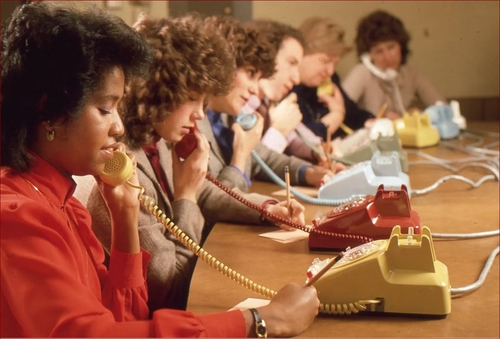PRESS REPORTS and the tongue-lashings of assorted politicians notwithstanding, WGBH didn't do anything wrong. Nor did WNET, WETA, or KQED. The public television giants in Boston, New York, Washington, and San Francisco have been catching all kinds of hell in the wake of reports that they swapped direct-mail fund-raising lists with political organizations. All four stations have traded names with the Democratic National Committee; at WETA the practice has been going on for at least 20 years.
More than just these stations are involved. On Tuesday, the chief of the Corporation for Public Broadcasting estimated that 30 others have obtained names from political groups. No one has compiled a definitive list of the ideological organizations with which the stations have exchanged donor information, but it seems safe to assume that it's a long one. KQED has acknowledged swapping data with Handgun Control Inc. and Planned Parenthood. In 1997 it leased its lists to the campaign of California Senator Barbara Boxer, a Democrat. Other politicians and other stations have made similar deals. New Hampshire public television, for example, shared names with Bob Dole's 1996 presidential campaign.
 WGBH and other PBS broadcast giants have become fundraising powerhouses. Above, volunteer man the phones during a pledge drive. |
All of which has some Republicans in a lather.
"It's immoral, it's unethical, and we're going to bring it to an end," rages Ken Johnson, a spokesman for US Representative Billy Tauzin, who chairs the House Telecommunications Subcommittee. Representative Paul Gillmor of Ohio, who sits on Tauzin's committee, calls the list-trading a "crass abuse of listeners and supporters." Michael Collins, the always quotable press secretary of the Republican National Committee, says public broadcasting has allowed itself to be treated "as a branch office, as a wholly owned subsidiary" of the Democratic Party.
Not for the first time, the GOP is missing the point. The significance of these direct-mail swaps is not that public television stations prospect for donations among the financial supporters of political groups. It is that these stations know where the money is and know how to go after it.
Public television has grown up. It is no babe in the broadcast woods, struggling to air high-quality programming on a shoestring budget. PBS stations today are sophisticated and adroit, as skilled at fund-raising as they are at public relations. Once, perhaps, public TV needed help in order to hold its own against the commercial broadcasters. But that day is long past.
What Republicans — and Democrats — ought to be talking about is not whether sharing lists of contributors is incompatible with the subsidy that PBS gets from the government, but whether any justification exists to preserve that subsidy. Once a welfare recipient gets a job and can support herself, she goes off the dole. Taxpayers spend $350 million a year on what amounts to welfare for public broadcasting. If, after all these years, public TV has developed the savvy to raise the money it needs from willing donors, customers, and underwriters, shouldn't it, too, go off the dole?
The Boston Globe analyzed WGBH's finances as part of a lengthy 1997 series. What reporter Daniel Golden found was a sleek moneymaking machine:
"At WGBH, fund-raising influences every key decision — including programming.
"Fund-raising head Victoria Devlin joins five other WGBH executives at weekly editorial meetings, crossing the traditional divide between the business and programming sides. Sources say she can scuttle innovative program ideas just by saying she won't be able to raise money for them . . . .
"Under Devlin, 165 of WGBH's 1,186 employees solicit donations from viewers, foundations, and corporations, making 'development and external affairs' one of the station's largest departments. More employees work in fund-raising than in national programming, WGBH radio, or local television operations. . . .
"By far the largest number of her employees, about 100, organize pledge drives and other events to sell memberships for $40 a year. . . . Eighteen staffers seek major gifts, and four run the annual auction, supplemented by dozens of volunteers. Nearly 35 more employees pitch corporations and foundations to fund national and local programs."
On top of this well-oiled fund-raising operation — which currently brings in $64 million a year — WGBH raises additional millions through its commercial marketing division. "It hawks everything from books to games, T-shirts to telescopes, and advertises a toll-free number on air for buying home videos," Golden wrote. Programs that lend themselves to this sort of merchandising are likelier to get on the air than those that don't. WGBH and its sister stations boast that they are "commercial-free." But they have learned to take commercial advantage of their popular shows.
No longer is PBS the one bright spot in a vast wasteland of televised mediocrity. Viewers now enjoy a wide array of fine broadcast offerings, from C-Span to Arts & Entertainment, from ESPN to the Learning Channel. The original rationale for "public" television — that the market would not support high-level programs — has become a highly debatable proposition. What is not debatable is whether public TV can sustain itself financially. It can.
Direct mail may be a bane of modern life, but it has become a standard way to identify willing financial supporters. If Congress wants to right a wrong, let it relieve public TV's unwilling financial supporters — the taxpayers who are made to subsidize PBS whether they choose to or not. Big Bird is strong enough to fly on his own. It's time he was told to leave the nest.
Jeff Jacoby is a columnist for The Boston Globe.
-- ## --
Follow Jeff Jacoby on X (aka Twitter).
Discuss his columns on Facebook.
Want to read more? Sign up for "Arguable," Jeff Jacoby's free weekly email newsletter.

